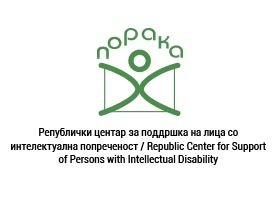Today on December 13 we celebrate the 6th anniversary of the adoption of the UN CRPD by the General Assembly of the United Nations, the first Human Rights Treaty of the 21st century. 125 countries have ratified the CRPD, among which 24 EU members. It has also been the first Human Rights instrument ratified by the European Union.
The UN CRPD has received the highest number of signatures on the day of its opening but despite this high political commitment what has changed in the life of people with intellectual disabilities?
Disability issues have clearly been at the centre of many debates in the past years, more attention has been drawn to “invisible” citizens and disability has been recognized as a Human Rights issue. However, with the austerity measures and budget cuts, we are at risk of not making any real progress and improvement on the Human rights of people with intellectual disabilities. Families have to compensate for cuts in welfare spending. This is adding to the poverty and vulnerability of people with intellectual disabilities and their families. Changing eligibility criteria and longer waiting lists are leaving more on the shoulders of families. No choice means no quality of life.
People with intellectual disability are still today put under guardianship, loosing most of their basic rights, such as the right to marry or to vote, although the CRPD clearly prohibits plenary guardianship. While debates are taking place in many European countries and capacity reforms are on their way, some people with intellectual disabilities remain “legally death” without forthcoming review of their situation. No appropriate support model has been implemented so far.
Many people with intellectual disabilities are still living in large residential institutions. In recent years, the European Union has shown greater policy commitment and explored the condition and the potential to realize the right to live independently and being included in the society. Thanks to the Report on the Transition from Institutional to Community-based care, addressing the issues of institutional care reform in their complexity and other studies and researches funded by the European Commission evidence of Human rights violation and segregation in residential settings have been provided, particularly for people with intellectual and psychosocial disabilities. This work have been a first attempt to advice on how to achieve de-institutionalization and also what to avoid and distilled from the experience acquired in those Member States where such reforms have already been carried out. However cuts in independently living support postpone efforts to introduce individual budgets and the development of new community-based services.
Children with intellectual disabilities are still far from enjoying equal and inclusive schooling opportunities in Europe. While it appears that a number of countries have made some attempts to make their mainstream education systems more inclusive, the necessary level of support to make inclusive education available to all children is still missing. Inclusion Europe members have been particularly alarmed by the recent political decisions taken in response to the economic and financial crisis. Our members in several European countries, including Ireland and Spain, reported that austerity measures undertaken by governments to tackle the economic recession put the improvements towards inclusive education in jeopardy.
Six years after the adoption of the Un CRPD, disability has become a topic on the agenda of national and European policies, but a lot of work has still to be done to ensure that people with intellectual disabilities enjoy the same human rights as their co-citizens.
More information available at: www.e-include.eu



